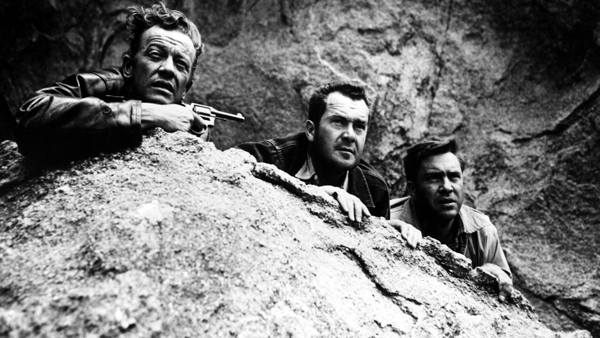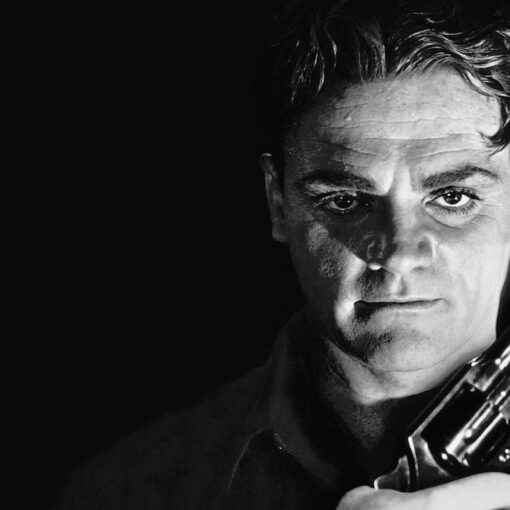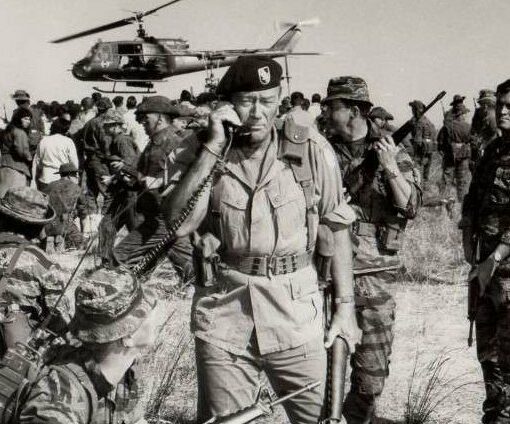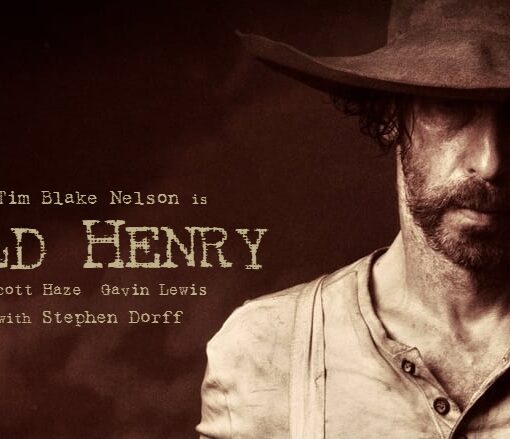Based on the true story of Billy Cook a psychotic killer, Ida Lupino’s The Hitch-Hiker (1953) is a prime example of what makes film noir a general aesthetic as opposed to a specific genre. To elaborate, this story takes place almost entirely on the road in the brightly lit Mexican desert with a few various night scenes. What brings it into noir territory is its dark storyline and tone, not so much the trademark expressionistic lighting and visuals that are commonly attributed to the term.

Two friends from California, Gilbert Bowen (Frank Lovejoy) and Roy Collins (Edmond O’Brien) are taking a fishing vacation in Mexico when they unknowingly pick up a wanted killer named Emmett Myers (William Talman) on the road. Bowen and Collins are quickly kidnapped by Myers who plans to use them to get to the port of Santa Rosalia where he’ll then kill them and catch a ferry to freedom. We get an example of Myers’ twisted idea of fun right away when he has the men stop and forces Bowen to use his rifle to shoot a beer can out of Collins’ hand at a pretty far distance. Luckily, Bowen makes the shot and they continue on their way. Talman is very convincing as the psychopathic Myers, whose appearance and composure gives him the charm of an eel. He has one bad eye that never closes and it creates an especially effective chill when Bowen and Collins are held at gunpoint at night neither of them knowing if Myers is awake or asleep. Meanwhile, the police have already found several of Myers’ other victims throughout the USA and connect with Mexican authorities to begin searching for them. One night Bowen and Collins try to escape from Myers but are thwarted in their attempt. Oddly enough there is no repercussions he merely has them pick up where they left off. It’s very interesting how in the film Myers is known as a cold blooded killer who dispatches his victims quickly and without remorse, but when he’s with Bowen and Collins he almost becomes a male version of the femme fatale in most noir stories. He taunts and toys with both men in a sadistic way for his own entertainment. Another detail about the film that makes it unique is how neither Bowen and Collins are overtly tough types of guys, I mean Mike Hammer they’re not. At one point Collins breaks down and cries when he spots a search helicopter flying overhead. These aspects (which were probably added by Lupino) only heighten the tension and drags out the anguish making the movie the edgy, memorable work of pulp entertainment it is.
The Hitch-Hiker was Ida Lupino’s 5th film as a director. Before making it she had done movies mainly about women’s struggles. It’s clear from the fast pacing and solid, taut direction of the production she had exceptional talent as a genre filmmaker as well.






